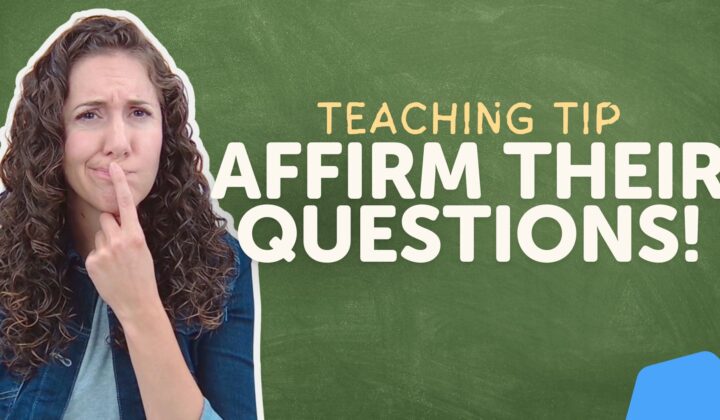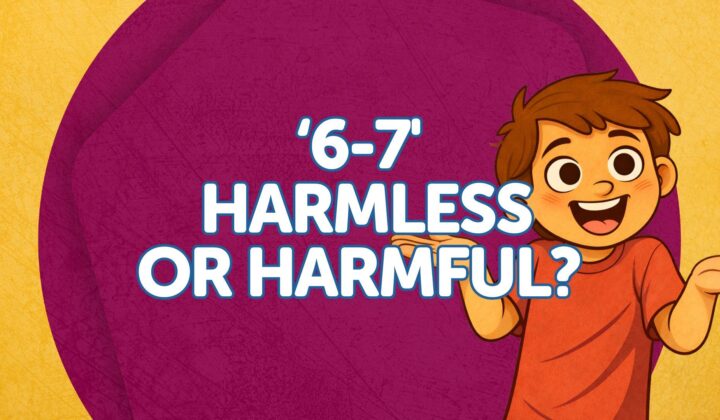Learn more about the journey that led to us equipping kids to carefully evaluate every idea they encounter.
Meet members of our team who have contributed to curriculum development.
Hear from real users of the Foundation Curriculum.
Learn what we believe about God, Jesus, Scripture, and more.
The Dream Traveler's Quest - Book Series Video Review
Over the past several months, most Christian parents' news feeds have been flooded with ads for this book, so it's no wonder that parents may now be looking for a review of “The Dream Traveler's Quest” by Ted and Kara Dekker.
This series is advertised as "Kids' Christian Fiction." But is it genuinely Christian, or is it alternate worldviews being snuck in under the guise of Christian language?
Let’s explore these questions through this book review.
Contents:
What Is The Dream Traveler's Quest About?
The main character is a boy named Theo who is a typical 6th grader at a Christian middle school. He is full of fear, and one of his greatest fears is a bully at his school named Asher.
One day Theo is running away from Asher and is trying to hide from him in the library. And while he’s in the library he discovers an ancient book, and this book ends up transporting him into a whole other world. This is a really exciting theme for 8-12 year olds
While Theo finds himself in this other world, he meets a man named Talya, a mystic who claims to know a lot about Elyon, who is the god figure. He not only knows about him but really knows his ways. Talya sends Theo on a quest and the goal is to find 5 seals of truth. These seals of truth are supposed to save Theo from his fears.
So throughout the four books, Theo keeps going back and forth between his classroom, his world, and this other earth. And each time he goes back to this other earth another child from his class goes along with him. In each book, he discovers one of the seals truth, and finally discovers the last two truths in the fourth book.
In the end all the characters learn these things and are able to get along.
Stories Are Purposefully Crafted For Lessons To Be Learned
The characters in the book are very relatable. They’re struggling with the very same things that many 8-12 years olds struggle with.
So I appreciate that this book series is not just fluff and for entertainment. Each story is very purposefully crafted and points to some lesson to be learned.
Many Truths Claims Are Actually Falsehoods
Although the characters are so relatable and the story is entertaining, the themes presented as truths and even with Scripture are actually falsehoods.
Below are four issues that I’ve identified as main themes that contradict the Christian worldview.
A Misunderstanding of God
First, there are true statements about God. Theo learns that God is infinite. This is a resounding yes.
God is light and in him there is no darkness. This is another trait that is true in Scripture.
However, one of the main teachings in the book is that we cannot do anything to disappoint God. Theo is told by Elyon that he cannot fail him or ever disappoint him.
It’s true that once we’re reconciled in God there is nothing that can separate us from his love. This is anchored in Scripture from the book of Romans. Yet being separated from God is different than sinning against him.
Similarly, God is presented as all-loving and non-judging. Yet we know from Scripture that God is both all-loving and God is just. Love and justice go hand-in-hand.
Misunderstanding of Humans
This book series teaches readers that we are light in the same way that God is light - that we are actually made of his light.
In the third book Theo says,
“We are the light of the world made up of the same light that is our father Elyon. In that light nothing can threaten us.”
This is a pantheistic worldview that is snuck in under the guise of misquoted Scripture.
Studying and going through the book of Genesis makes it clear that we are not a part of God - we are his creation made in his image.
A second major issue is about our bodies - that our bodies have nothing to do with who we really are.
In the second book one of Theo’s friends tells him,
“Our bodies - they’re like costumes that we wear while we’re here in this world. But our bodies aren’t who we are, they’re only what we are for a short time.”
However, Christianity gives great value to our bodies. Our bodies are not just costumes, but are intricately woven to our souls and are a very important part of who we are.
2 Corinthians 5 and Jesus’s own use of his resurrected body shed light on God’s value of the human body. The video goes more in-depth about this.
A Misunderstanding of Humanity’s Problem
The human problem in this book has to deal with fear. It’s failing to recognize that we are light and that we are beautiful. All our fears will go away if we believe this.
In the second book, Anna-Lee says to Theo,
“I saw myself through Elyon’s eyes. The light was in me. It was me. I am beautiful.”
In the fourth book, Theo says to Asher,
“Asher, I love you. You are far more powerful and beautiful than you can possibly know. You are loved. You are love.”
1 John 4:18 is misquoted out of context throughout this book.
Looking at this passage as a whole and realize that we did justly deserve to be punished from God, but he graciously sent Jesus to be a propitiation for our sins.
Our main problem is sin that actually comes from within. And this sin has been dealt with by God himself.
There is much more said about this problem in my video review.
A Misunderstanding of the Solution
The solution presented by this book is to let go of that fear and to accept that we are beautiful and the light of the world.
There’s no repentance anywhere in the book. We know that this is not the solution to our problems because we are at odds with God and with one another.
A great place to start with our kids is Mark 1:14-15, where Jesus says,
“Repent and believe the gospel”
Ephesians 2 explains that we were dead in our trespasses, so the correct and only solution to this problem is to repent and be reconciled to God through Christ
Conclusion
Although Ted and his daughter Kara offer a highly relatable story intent on helping kids with important lessons, the lessons actually promote alternate worldviews under the guise of Christian language.
Points laid out in this blog post are summarized from the recorded video above. Much more detailed explanations and tips for conversations with your children are found in the video.
If you found this book review to be helpful, you can also sign up for the Foundation Worldview Book Club where every month both parents and children receive a book recommendation with reflection questions.

About Elizabeth Urbanowicz
Elizabeth Urbanowicz is a follower of Jesus who is passionate about equipping kids to understand the truth of the Christian worldview. Elizabeth holds a B.S. in Elementary Education from Gordon College, an M.S.Ed. in Education from Northern Illinois University, and an M.A. in Christian Apologetics from Biola University. Elizabeth spent the first decade of her professional career teaching elementary students at a Christian school. Elizabeth now works full time on developing comparative worldview and apologetics resources for children. Her goal is to prepare the next generation to be lifelong critical thinkers and, most importantly, lifelong disciples of Jesus.
Related Posts and insights

Affirm the Questions of the Children You Are Teaching
Affirm children’s questions to foster curiosity and lifelong learning. Discover a simple, biblical strategy for building a love of learning.

How Should Christians Respond to the "6 7" Trend? Helping Kids Think Biblically About Cultural Phrases
How should Christian parents handle the "six seven" trend? Learn to avoid the genetic fallacy and guide your kids to think biblically about cultural phrases.

How Do We Explain the Doctrine of Election to Kids?
How do you explain the doctrine of election to kids without causing fear? Discover how Scripture's promises bring peace and assurance to children's hearts.
